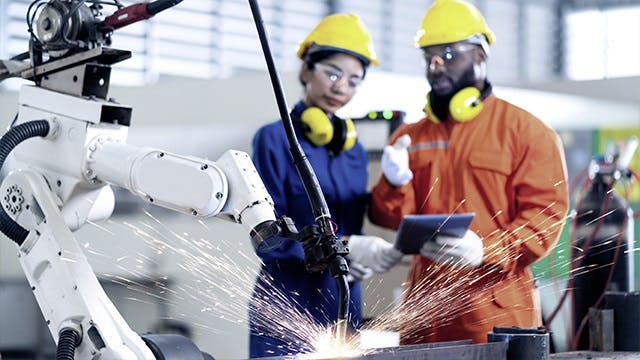How can you maximize your operational efficiency and continue delivering value to your customers and business?
Implement a manufacturing execution system (MES): a comprehensive solution that is aligned with your smart manufacturing principles and enables you to monitor and synchronize manufacturing activities across your plant(s). With MES software, you can gain complete control over your manufacturing processes in real time for more flexible, sustainable and informed production that is adaptive to the requirements you need to fulfill.







